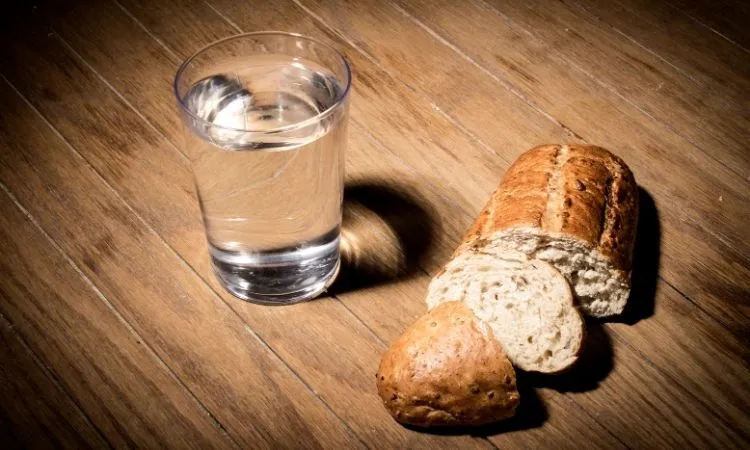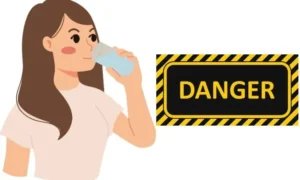Fasting-based diets have recently become quite common in the field of weight loss, and water fasting is one of the most radical of these diets. Water fasting, as the name implies, refers to a period in which no food or drink other than water is consumed.
This type of fasting can usually last between 24 and 72 hours. Regardless of the duration of water fasting, as nutrition and diet experts of Yaşam Hospitals, we do not recommend this method. Fasting is not considered a safe and healthy fat loss method.
What is Water Fasting?
One of the topics of interest in the journey of weight loss and fat burning is water fasting. This fasting can give you a strong start to your weight loss process. Water fasting is a way of eating that is carried out by consuming only water for a certain period of time. During this diet, it is foreseen to consume only water and is usually applied for short periods of time. This method can help the body get rid of excess weight. It is a short-term diet made by drinking only water and water can be flavoured with different methods. It can be applied to patients in some special cases under medical supervision. Water fasts of 3 to 7 days are generally recommended, as they can give different results for each individual. During water fasting, it is easier to remove harmful toxins from the body. Lung cleansing in smokers and kidney cleansing in those who consume alcohol can be realised. If you do not have a chronic illness, you can observe how water fasting affects your body. If your body adapts to water fasting, a 7-day process can be tried. However, at the end of 7 days, it is recommended to return to a regular diet.
7 Day Water Fast
During the seven-day Water Fast, the only thing to be consumed during this period should be water. Solid foods or other beverages (such as fruit juice, milk, etc.) are strongly discouraged. Pure distilled water is considered the most suitable option, but boiled and cooled water can also be used. Do not add any additional substances to boiled water. Depending on your own needs and capacity, you should drink about 1.5 to 3 litres of water in one day. There is no harm in exceeding this amount if necessary. This regime should be maintained for a full seven days.
What are the Benefits of Water Fasting?
Initiates Fat Burning
If you do not have any health problems, the water fast you are considering trying can stimulate your metabolism and trigger the fat burning process. When the fat burning process is activated, you may need to go to the toilet frequently. In order to prevent and reduce fat accumulation in the abdominal area, water fasting can be applied as indicated.
Calms Stress
Water stimulates the nervous system and increases the body’s oxygen level. It is recommended to drink water in moments of tension or sadness. During a three-day water fast, various emotional changes can occur. This diet can help you cope with stress and you can discover these benefits for yourself by trying it.
Cleans Kidneys
Adequate water consumption is essential for healthy kidney functioning. Water fasting, which contributes to the proper functioning of kidney functions, can help prevent sand formation in the kidneys and remove harmful substances from the body. You can consider trying water fasting to protect your kidney health and cleanse your body.
Stimulates the Bowels
Lazy bowels often occur as a result of insufficient water intake. When water fasting is applied, the intestines are activated more frequently and are cleaned in this process. For people with constipation, water fasting is recommended as a method that contributes to cleansing the intestines. The benefits of water fasting help to improve intestinal health in general.
Water Fasting Dangers
May Damage Your Kidneys
A February 2018 study shows that water fasting has negative effects on kidney function. Researchers found high levels of uric acid in people’s blood after water fasting, which can cause kidney stones and gout.
May Cause Sudden Decreases in Blood Sugar
If you have diabetes, water fasting can carry serious risks. A 2013 study showed that water fasting can lead to hypoglycaemia, i.e. dangerously low blood sugar levels.
Hypoglycaemia can cause the following symptoms
- Irregular or accelerated heartbeat
- Extreme fatigue
- Trembling
- Mood changes
- Sweating
- Feeling hungry
- Restlessness or irritability
- numbness or tingling sensation in the lips, tongue or cheeks
If left untreated, this can lead to serious complications such as seizures or loss of consciousness.
You don’t get enough nutrients
Water fasting is a diet method that creates an unexpected calorie deficit for many people and provides rapid weight loss. However, this severe calorie restriction can put your body into a state of starvation.
As a result of malnutrition, you may experience symptoms such as
- Faintness
- Hair loss
- Coordination problems
- Decreased strength and endurance
May Damage Your Heart
Prolonged low calorie consumption can cause your body to break down muscle tissue, including the heart muscle, for energy. This can lead to the following health problems
- Slowing heart rate
- Irregular heart rhythm
- Low blood pressure
- Risk of heart failure
May Disrupt Your Eating Pattern
If you have suffered from eating disorders such as anorexia or bulimia in the past, severe dieting practices such as water fasting can relapse these health problems. In addition, diets such as water fasting can cause imbalances in your eating habits by disrupting your diet, even if you do not have a history of such health problems.
Water Fasting Results
Extreme diets often promise quick and effective weight loss. But do methods such as water fasting really lead to weight loss?
It may be possible to achieve weight loss with water fasting, but the results of this method are neither safe nor sustainable in the long term. Metabolism includes the calories burned by your body during breathing, blood circulation and all the processes that are necessary for the maintenance of your vital functions. Even if fewer calories are ingested during fasting, the body begins to burn these calories more slowly and can lead to the use of muscle tissue for energy production.









